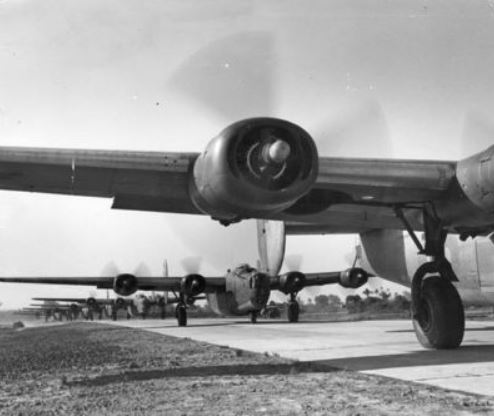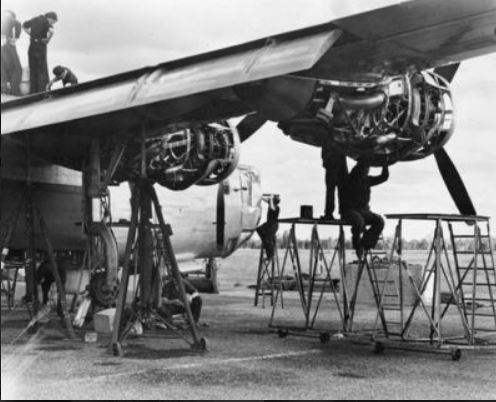Difference between revisions of "No. 99 Squadron RAAF"
From Our Contribution
(Created page with "{{Infobox | name = No. 99 Squadron RAAF | title = | above = | subheader = | image = File:99_Squadron_Taxying.jpg | caption...") |
(→Notes) |
||
| Line 27: | Line 27: | ||
==Notes== | ==Notes== | ||
| − | |||
Latest revision as of 20:10, 12 July 2020
 99 Squadron aircraft taxying | |
 Inspection of B-24 Liberator's engines | |
Brief History
The squadron was formed on 1 Feb 1945 at Leyburn in Queensland as a heavy bomber squadron operating Consolidated B-24 Liberator aircraft. Personnel began arriving during February, and their aircraft in early March 1945. The squadron was then transferred to Jondaryan in Queensland where it had 8 Liberators, a Tiger Moth and an Anson Declared operational in April, the squadron was soon on the move to Darwin in May. They then received another 6 Liberators and continued to prepare for operations.
However, the squadron was still in the process of concentrating in Darwin when the war finished in August, meaning that it did not see action against the Japanese. Its early work was a transport role, flying personnel and supplies between Darwin and southern RAAF bases. Following the end of the war No. 99 Squadron aircraft was utilised as transport aircraft carrying both personnel and supplies between Darwin and southern Australia. The squadron suffered its first loss on 14 Sep 1945 when a Liberator crashed near RAAF Base Amberley, killing five crew members. Transport operations continued throughout October, with the squadron's aircraft transporting around 800 passengers, most of whom were recently liberated Allied prisoners of war, and a large quantity of freight. In November it relocated to Tocumwal in New South Wales. Most staff had been discharged by March 1946, and the squadron was disbanded on 5 Jun 1946.
Ground crew
- Robert (Mick) Bunney 18 Mar - November 1945
Notes